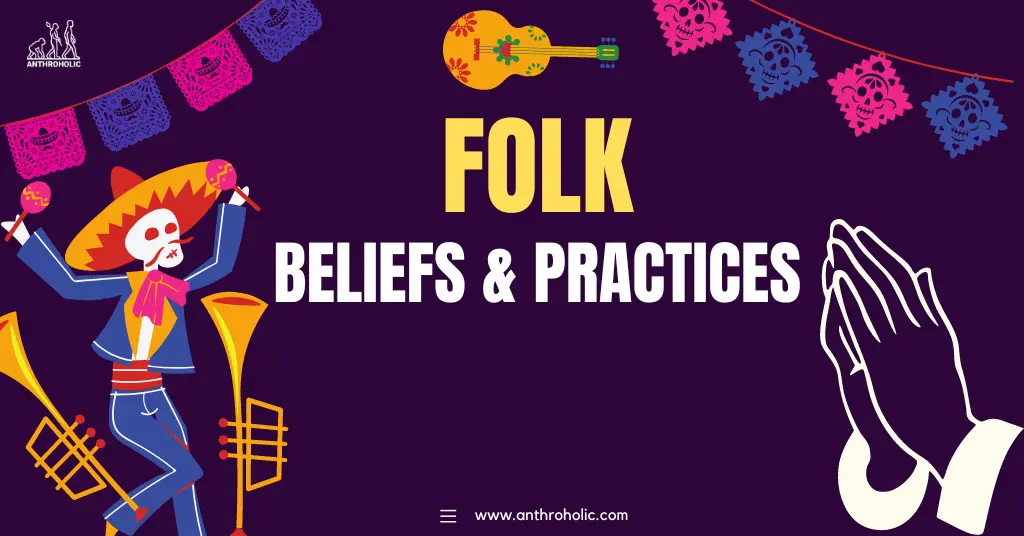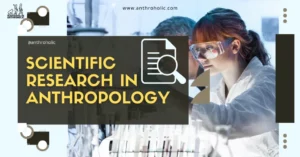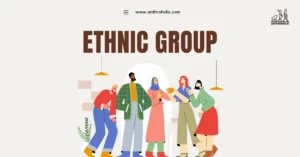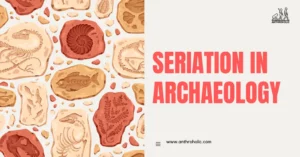AI Answer Evaluation Platform Live Now. Try Free Answer Evaluation Now
Folk Beliefs and Practices
Folk beliefs and practices are rich tapestries of cultural narratives and activities that echo societies’ histories, cultural identities, and collective wisdom. These informal modes of thought and action often blend the magical and the mundane, the sacred and the profane, and span an incredible diversity of perspectives, from rites of passage to everyday practices [1].

Folk Beliefs: Telling Tales of Cultural Wisdom
Unveiling the Cultural Unconscious
Folk beliefs are essentially the informal creeds that people abide by, not due to any scientific rationale, but because of an accepted, shared wisdom that has withstood the test of time. They reflect a society’s cultural unconscious, shaping social behavior and norms [2].
Table 1.0 illustrates some examples of folk beliefs:
| Region | Folk Belief |
|---|---|
| China | Red color brings good luck and drives away evil spirits |
| India | The Evil Eye can cause misfortune or injury |
| Ireland | Four-leaf clovers are symbols of good luck |
Function and Value of Folk Beliefs
Although often dismissed as mere superstition, folk beliefs provide critical insights into human cognition, social structures, and cultural evolution:
- Sense of Belonging: Shared beliefs can promote cohesion and unity within a community [3].
- Fear and Control: Folk beliefs often help individuals navigate and make sense of the unknown or uncertain aspects of life [4].
- Transmission of Values: Folk beliefs can serve as an ethical framework and facilitate the transfer of values across generations.
Folk Practices: The Rituals We Live By
The What and the Why
Folk practices are the ritualistic actions or customs that, much like folk beliefs, have been passed down through generations. They range from daily routines, like greetings and eating habits, to yearly festivals and ceremonies.
Cultural Specificity of Folk Practices
Folk practices are often deeply rooted in the geography, history, and socio-economic conditions of a region. These practices can be starkly different even within the same country.
For instance, in Japan, while the New Year (Shogatsu) is universally celebrated, the way it is observed varies from region to region and even between urban and rural settings.
Role and Significance of Folk Practices
Folk practices often serve multifaceted roles within communities:
- Maintaining Cultural Identity: They help maintain a sense of continuity and connection with a shared past.
- Social Cohesion: Folk practices often encourage community participation and promote social cohesion.
- Emotional Satisfaction: They can provide emotional satisfaction by allowing people to connect with their roots, especially in an increasingly globalized world.
The Intricate Dance between Folk Beliefs and Practices
While beliefs and practices might appear distinct, they are intimately entwined. Beliefs often underpin practices, giving them purpose and meaning. Conversely, practices can reinforce and validate beliefs.
For instance, the Mexican holiday ‘Dia de los Muertos’ (Day of the Dead) showcases a belief in the afterlife and ancestral spirits. The associated practices, such as creating altars and leaving offerings, both stem from and bolster this belief.
Conclusion
Folk beliefs and practices hold a mirror to our shared pasts and societal undercurrents, reflecting both the diversity and unity of the human experience. As researchers continue to decode the complexities of these beliefs and practices, they uncover the richness of cultural knowledge and the intricate web of human interactions that bind us together.
References
[1] Geertz, Clifford. (1973). “The Interpretation of Cultures”. Basic Books.
[2] Levi-Bruhl, Lucien. (1922). “Primitive Mentality”. George Allen & Unwin.
[3] Durkheim, Emile. (1912). “The Elementary Forms of Religious Life”. Free Press.
[4] Malinowski, Bronislaw. (1948). “Magic, Science and Religion”. Beacon Press.




